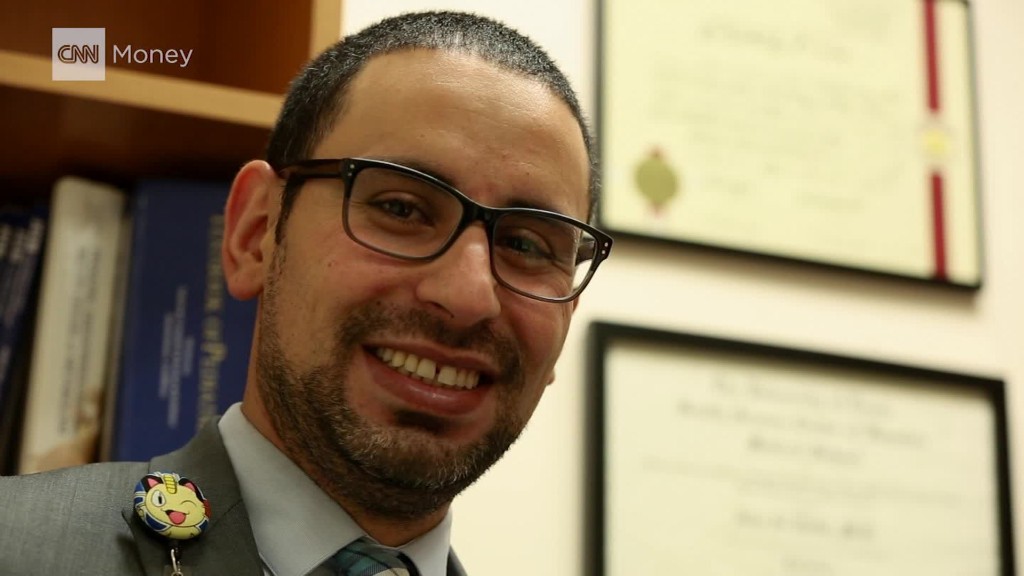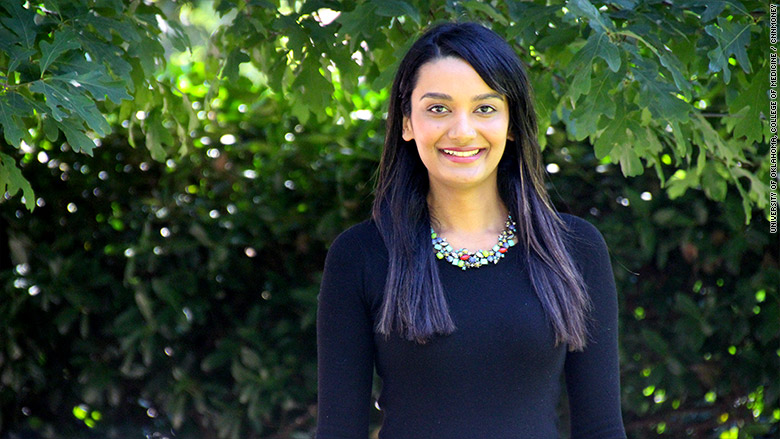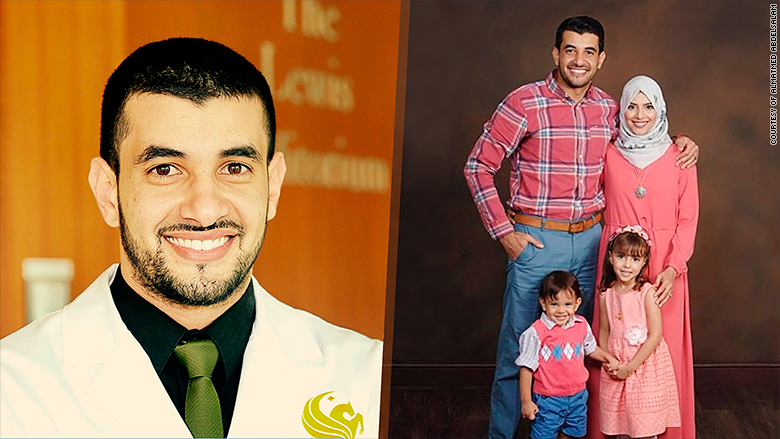
Hospitals and other medical facilities in some of the neediest parts of the U.S. say the Trump administration's decision to temporarily halt expedited processing of H-1B visas will leave them struggling to hire the doctors they desperately need.
The government said last week that it will temporarily suspend 15-day "premium processing" of H-1B visas, which are issued to highly skilled foreign workers. Beginning April 3rd, applicants will likely have to wait six months or more for their visa to be approved. The processing suspension could last up to six months.
That poses a problem for at least 1,500 foreign medical residents who have been selected to stay in the country after graduation this summer and work in some of America's most underserved communities.
Under a program called the Conrad 30 J-1 visa waiver, many international medical students have the option to stay in the country post-residency for three years as long as they work in a rural or urban community where there is a doctor shortage. Many of these communities are home to low-income, often uninsured, populations.
For these graduating physicians, the Conrad 30 program -- which waives the requirement that medical school graduates return to their home country for two years before applying for an H-1B visa -- serves as a pathway toward obtaining an H-1B work visa more quickly.
But the timing can be tricky.
Medical residents obtain a Conrad 30 visa waiver from the state they will be working in during the fall or winter of their final year of residency. Then the waiver is sent to the State Department for approval -- a process that can take several weeks. Once the waiver is approved and secured, the resident's new employer then applies for expedited processing of an H-1B on their behalf.
All of this must occur in a matter of months, before their residency is over in June and their student visas expire. After that, the newly trained physicians have a grace period of 30 days to remain in the country.
But now the temporary ban on expedited processing could draw out the process by several months, leaving the hundreds of medical residents who apply for visa waivers uncertain about whether they will be able to obtain their H-1B in time to start their jobs.
Related: Visa crackdown puts these rural doctors at risk
"In states like Oklahoma, foreign physicians are being brought in through the Conrad 30 J-1 visa waiver and other programs because there is a very high need for them," said Jana Castleberry, manager of primary care and rural health workforce development with Oklahoma's Department of Health.
Castleberry noted that acute physician shortages in the state are across the board, from primary care to specialists and particularly in psychiatry.
"With this sudden H-1B stop order we are in danger of losing the opportunity to retain physicians who've trained in the U.S. in states struggling to hire doctors," she said.
Kirti Dadwal is one of them.
Originally from India, Dadwal is nearing the end of her four-year psychiatry residency at the University of Oklahoma's College of Medicine. She has been offered a position as a psychiatrist by AllianceHealth Midwest, a 75-bed hospital in Oklahoma City, serving mostly adult and geriatric patients.
She's slated to begin working at AllianceHealth in July, but she's waiting for the State Department to approve her visa waiver before her new employer can file for an H-1B visa on her behalf.

But time is getting tight and Dadwal isn't optimistic that her waiver will get approved before April 3. That would mean AllianceHealth won't be able to file for fast-track processing for her H-1B visa. By default, her application will then undergo the protracted regular processing.
"I'm not sure how long the hospital will hold the job for me," she said.
Without a valid visa, she can't work, she can't travel and she won't even have a valid driver's license. Dadwal, who has a six-month old son, is anxious.
"Professionally and personally, everything is unstable for me now," she said. "I've worked so hard for four years and was looking forward to being a practicing physician."
AllianceHealth Midwest declined to comment for this story.
Related: Visa ban could make doctor shortage in rural America even worse
Dadwal's situation mirrors that of potentially hundreds of Conrad 30 J-1 Visa Waiver medical residents.
They simply can't start their jobs without an H-1B visa.

Almatmed Abdelsalam, who's from Benghazi, Libya, has been hired to start as a physician in a hospital in Macon, Georgia, after his residency program at the University of Central Florida's College of Medicine ends in July. His employer MagnaCare provides physicians for three hospitals in the Macon area, which is also experiencing a doctor shortage.
Like Dadwal, he has yet to receive the State Department approvals he needs before MagnaCare can file for the expedited H-1B visa.
"I'm a little scared to think I will not get it before the April 3 deadline," he said. "I know that my employer is still looking for physicians and I think they'll wait for me since I signed an [employment] contract."
Abdelsalam said he is still looking at houses to relocate himself, his wife and their two young kids over the summer. It's "a leap of faith," he said.
The order issuing the temporary halt on fast track processing said it will allow for premium processing in certain cases, such as an emergency, humanitarian grounds or if the visa is for employment that is in the national interest.
Abdelsalam said he might try to make the case that his employment is in the national interest. "I don't know if it will work, but we will try."
The United States Citizenship and Immigration Services agency said it will review such requests on a case-by-case basis. The agency did not specifically state whether H-1B visas for doctors would be considered in the national interest. The Department of Homeland Security, which handles H-1B processing, did not respond to a CNNMoney request for comment.
Related: What Trump's latest H-1B move means for workers and business
The expedited H-1B stop order is also causing a lot of concern at one large teaching hospital in south central U.S. that regularly hires foreign physicians to fill vacancies in urgent care specialties.
The hospital has hired 12 foreign physicians to start on July 1 and its administration is now concerned that it will have to wait months to get the approvals for the physicians to start.
"It's not like we have someone else waiting in the wings. There are no second options," said a hospital administrator in charge of handling international staff and faculty who requested that he not be named.


